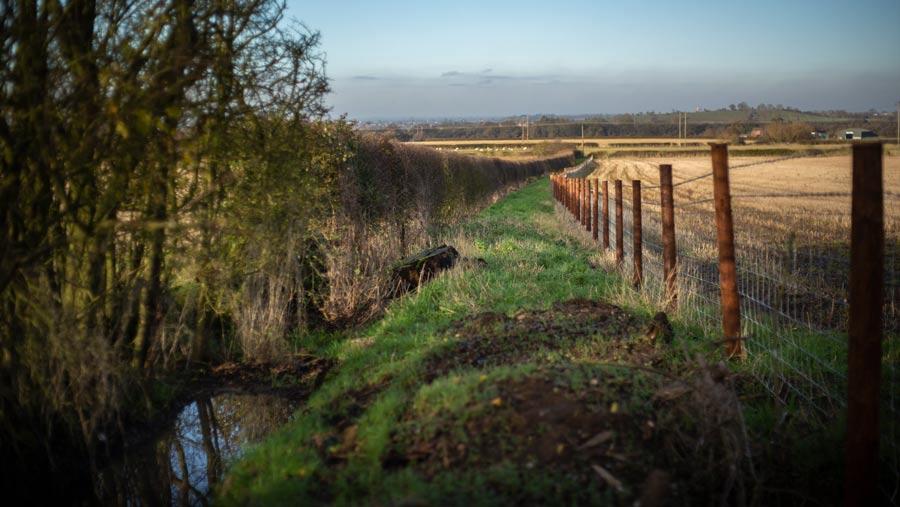Funding for cryptosporidium catchment watercourse fencing
 © Gordon Robson
© Gordon Robson Funding from the Severn Trent Protection Scheme (Steps) is offering 75% of the cost of watercourse fencing in cryptosporidium catchments to improve water quality.
The funding covers a range of types of fencing, including post and wire, sheep netting, permanent electric fencing and quick-clip steel stock netting.
Full payment is also on offer for what Severn Trent is calling “complementary items”. These are items that provide new access to water, such as drinking troughs and hard bases, water pipes and pumps in fields where access to water has been lost.
See also:How to prevent and treat cryptosporidiosis in calves
Further grants on offer for livestock farmers include a payment of £530/ha (based on a five-year agreement) to remove livestock from high-risk fields to reduce the risk of contamination from bacteria. This funding will be received via a single payment in the first year of the agreement.
Farmers can also apply for grant funding of £62/sq m for covering existing manure and livestock holding areas.
Additional funding is available for pesticide catchments, including up to £30,000 for sprayer washdown areas, as well as nitrate catchments – with 50% funding up to £10,000 for options including direct drilling of cover crops.
Who can apply?
The funding is available to farmers in Severn Trent priority catchments, with the aim of preventing nitrates, pesticides and cryptosporidium reaching watercourses.
How to apply
- Check you are in a priority catchment area via the Severn Trent website.
- Seek advice from your local Severn Trent agricultural adviser to find out which options would work best on your farm and what are most likely to make the greatest impact on the environment. This will help to increase the chances of an application being approved.
- Complete an application online by 31 January 2023.
- Remember, work must be completed with 12 months of an application being approved.
Disease fact file: Cryptosporidium
Cryptosporidium is the parasite responsible for causing cryptosporidiosis – one of the most common causes of calf scour.
Calves become infected via the eggs found in faeces of other infected calves and cows.
Once ingested, the parasite attaches itself to the gut wall and causes damage, which affects the digestive system.
This leads to the display of key clinical signs including watery scour, dehydration and reduced feed intake.
As well as calves, humans can also be infected with the parasite, so good hygiene is vital to limit the spread of disease.
Source: AHDB
